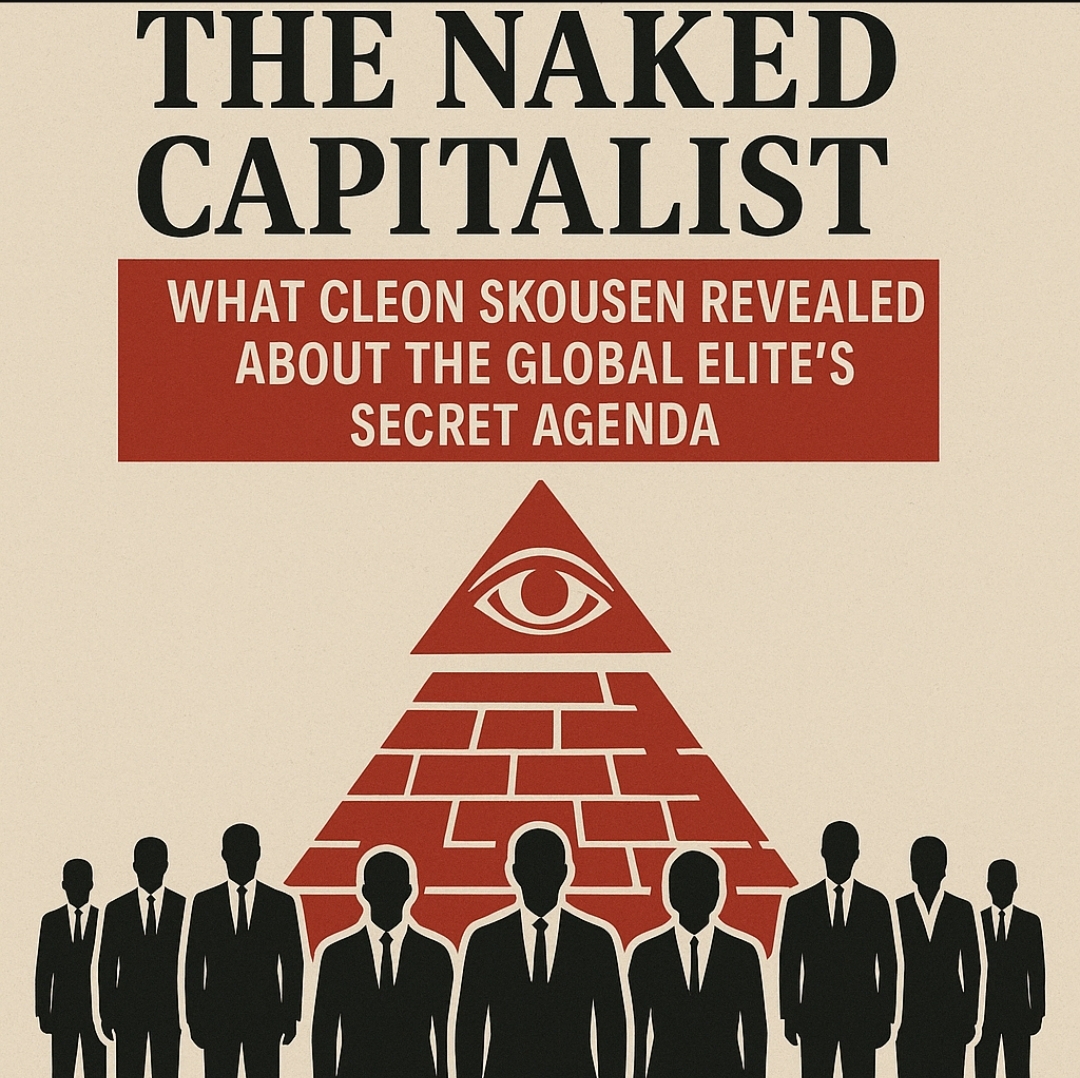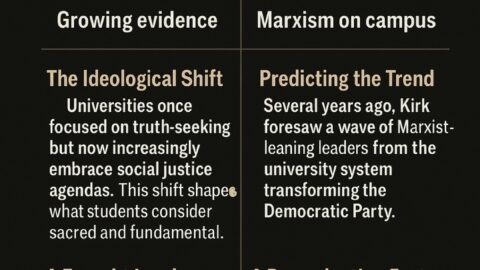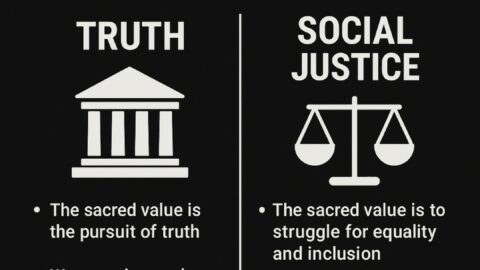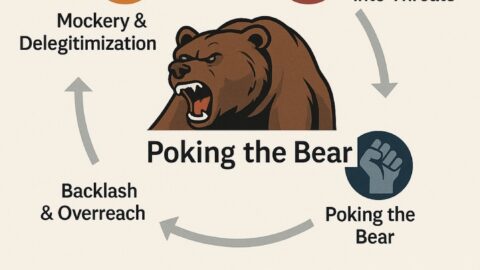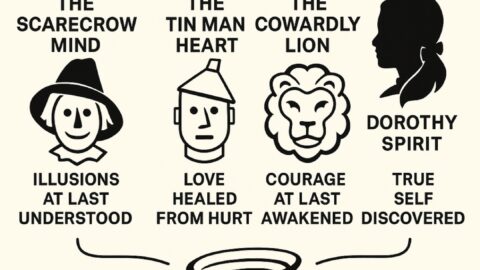“I know of the operations of this network because I have studied it for twenty years and was permitted for two years to examine its papers and secret records.”
—Dr. Carroll Quigley, Tragedy and Hope
Introduction
In 1970, political scientist and former FBI agent Cleon Skousen published The Naked Capitalist, a piercing commentary on Dr. Carroll Quigley’s 1,300-page tome Tragedy and Hope. Skousen’s work distilled Quigley’s insider revelations into a concise exposé—pulling back the curtain on a secret network of elite financiers, politicians, and intellectuals who use capitalism, communism, and every ideological tool at their disposal to shape the world according to their vision.
This article outlines 16 key insights from The Naked Capitalist, drawn directly from Quigley’s own words, as interpreted and summarized by Skousen. These truths are not conspiracy theories—they are admissions from a man who supported the system he exposed.
16 Key Revelations from The Naked Capitalist
The Paradox of Elite Support for Socialism
Why do the world’s wealthiest individuals fund ideologies—like socialism or communism—that seem to threaten private wealth? Because the goal is not ideology, but control. The form doesn’t matter; the function is centralization.
Quigley’s Insider Access
Quigley had privileged access to secret records of elite organizations. He didn’t speculate—he documented. And shockingly, he wasn’t opposed to their agenda—he only objected to their secrecy.
Bella Dodd’s Communist Confession
When U.S. Communist Party leaders needed direction, they turned to three Western financiers living in luxury at the Waldorf Towers. Moscow would later confirm these decisions. Communism, it turns out, was managed from New York, not Moscow.
U.S. Elites Empower Known Communists
High-level appointments like Harry Dexter White—a confirmed Soviet agent—prove that betrayal of American interests isn’t accidental. It is calculated and tolerated by those in power.
Hypocrisy in Foreign Trade
A former Federal Reserve chairman advocated trade with Communist China under the theory that “nations that trade don’t go to war.” But history refutes this. Trade was used not for peace, but for strategic integration and economic leverage.
American Banks Funding Dictatorships
U.S. banks repeatedly funded socialist and communist governments in Central and South America, even after those regimes confiscated American-owned properties. Why? Because stability and central control matter more to elites than free enterprise.
Same Institutions, Different Presidents
Whether Democrat or Republican, administration after administration pulled from the same pool of CFR and ADA insiders. The rotation of parties disguises the permanence of power behind the scenes.
Elite Failure Is Rewarded
When these insiders fail in public office, they’re rewarded—not punished—with lucrative posts in tax-exempt foundations, think tanks, and universities. The club protects its own.
The Global Elite Has No Name
British intelligence called it “Force X”—a nameless ruling elite operating beyond national loyalty, elected representation, or ideological consistency. Their true power lies in remaining anonymous.
Quigley Admits Submission Is the Endgame
In Tragedy and Hope, Quigley ultimately argues that it’s too late to resist the consolidation of global power. Those who fight will choke on the effort. Better to submit to “benevolent” technocrats. This is where “Hope” replaces “Tragedy”—but only for the ruling class.
He Admires the Network
Quigley confesses admiration for this global managerial elite, believing they are more capable than the average citizen. His only issue is their desire to remain hidden. He’s not blowing a whistle—he’s writing their authorized biography.
Mockery of Middle-Class Ideals
Quigley scoffs at Americans who still believe in constitutional liberty, property rights, or national sovereignty. These ideas, he argues, are outdated. The world belongs to the global planners now.
Communism as Controlled Opposition
Anti-Communists were right to suspect a conspiracy—but wrong about its center. Communism, according to Quigley, was never the end goal. It was a tool, funded and guided by capitalists who used it to break down traditional systems.
The Book Isn’t History—It’s Strategy
Though published as a history book, Tragedy and Hope is really a strategic roadmap for global governance. It praises manipulation, ridicules nationalism, and justifies elite dominance under the guise of international peace.
Money Is the Master Lever
This ruling network does not rely on brute force alone—it uses financial control, debt, and funding strings to control revolutions, governments, and ideologies. Ideals are for the masses; money is for managing the managers.
The System Requires Millions of Collaborators
While a few hundred elites coordinate from the top, their power depends on millions of bureaucrats, academics, journalists, and voters who prefer comfort over truth, security over liberty, and approval over integrity.
The Final Revelation: A Blueprint Hidden in Plain Sight
Cleon Skousen didn’t write The Naked Capitalist to invent a theory. He wrote it to translate what Quigley revealed for those who couldn’t—or wouldn’t—wade through 1,300 pages of elite justification and bureaucratic obscurity.
Quigley’s message was never meant for the average citizen. It was written for insiders—to reassure them that their vision for a technocratic global order was not only viable but inevitable.
Skousen’s genius was recognizing the difference between confession and boasting. He took Quigley’s blueprint and sounded the alarm. If Americans failed to wake up, they would sleepwalk into a centralized world where national sovereignty, local governance, family values, and religious liberty would be steamrolled by elite managers who answer to no one.
What Can Be Done?
Skousen’s warning is more urgent today than ever. The machinery of centralized control has expanded through:
- Digital surveillance
- Global financial interdependence
- Education indoctrination
- Propaganda and media narratives
But hope remains—not the hope of Quigley’s obedient globalism, but the hope of informed resistance, moral courage, and constitutional restoration.
The real war is not between capitalism and communism. It’s between freedom and control.

